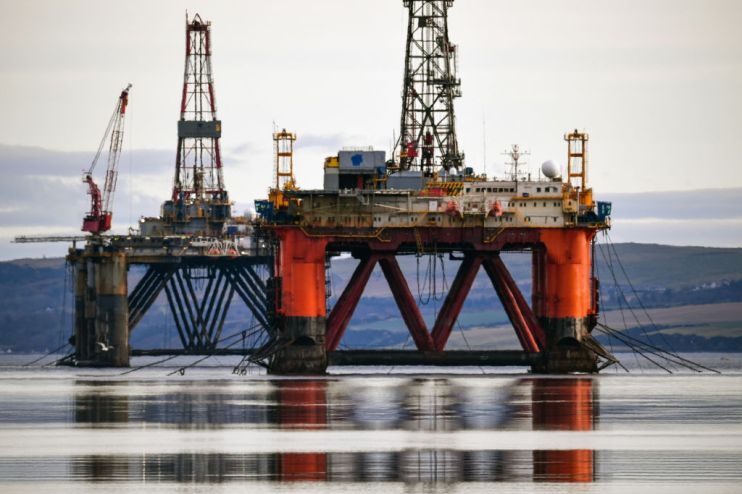Eni plans €2.5bn investment into UK energy sector as calls for windfall tax escalate

Italian oil major Eni will spend at least €2.5bn in the UK over the next four years, amid Downing Street demands that oil and gas companies boost investment in the country’s energy sector or suffer a windfall tax on their soaring profits.
Eni told The Financial Times that 80 per cent would be spent on carbon capture and renewable energy projects, and 20 per cent on fossil fuel production.
This follows rival firms BP and Shell pledging to invest £18bn and £25bn respectively over the coming decade on UK energy projects, with an emphasis on low and zero carbon developments.
Harbour Energy, the largest oil and gas producer in the North Sea this year, has also told the government this week it planned to invest £6bn in further upstream activity in the next three years, according to a person familiar with the plans.
The government is desperate to ramp up domestic energy generation to ensure the security of the country’s energy supplies and reduce its reliance on overseas suppliers.
After Russia’s invasion of Ukraine, it unveiled the country’s energy security strategy, which pledges to boost nuclear power from 6.9GW to 24GW over the next three decades, raising offshore wind power from 11 GW to 50 GW, and increase solar power capacity from 14GW potentially fivefold to 70GW by 2035.
The plans also included a commitment to ramp up North Sea oil and gas exploration, with Downing Street hosting roundtables with fossil fuel leaders earlier this year.
Government scrambles to dampen cost-of-living crisis
Prime Minister Boris Johnson also contesting spiralling energy bills, with the consumer price cap spiking to nearly £2,000 per year last month.
The government is now under increasing pressure to bring in new measures to tame the spiralling cost-of-living crisis, which has also seen food and fuel prices rise.
High prices are expected to baked into the energy sector for the next 2-3 years, with Cornwall Insight forecasting that not only will the price cap rise to £2,600 per year this October, but that it could remain elevated in 2024.
The cabinet is reportedly split over a potential windfall tax on North Sea oil and gas companies, with the Labour Party calling for a one-off levy to ease household energy bills.
The Chancellor Rishi Sunak is leaning towards a new tax, but wants it to be dependent on whether firms back the UK energy sector with more investment.
Business Secretary Kwasi Kwarteng has written to energy giants urging them to follow through on their spending plans.
In an interview with Bloomberg on Friday, Kwarteng said: “We want to see spending. I’m not going to quantify it, but we want to see actual real spending, and there’s evidence that they’re doing that.”
But several of the UK’s largest producers are yet to disclose any investment plans.
This includes TotalEnergies, NEO Energy, Spirit Energy, Repsol, CNOOC and APA Corporation’s Apache, all of which are expected to be among the top ten UK producers.
Eni speaks out against windfall tax
Eni is not in favour of a windfall tax, and told the Financial Times it could end up “slowing down” domestic investments.
It said: “In line with OEUK we believe that it would be best to ensure energy companies speed up investments in the energy transition rather than imposing a windfall tax which might have the effect of slowing down future investments.”
The energy giant generated record adjusted profits in 2021 of about £4bn – which included £254m in profits generated by its UK business, on which it paid £139m in tax.
Shell and BP has generated adjusted global profits of $9.1bn and $6.2bn respectively, in the first three months of the year.
Meanwhile, the Offshore Energies UK (OEUK) wrote last week to Kwasi Kwarteng, calling on the government to ensure the tax regime remains “predictable.”
North Sea oil and gas companies are already charged at a 40 per cent rate, consisting of 30 per cent corporation tax and a 10 per cent supplementary charge.
This is more than double what is paid by most domestic corporations.
However, Shell has not paid tax in the UK for four years because of tax refunds related to the decommissioning of old oil platforms, while BP has said it expects to pay about £1bn in UK taxes this year.
Nevertheless, the Office For Budget Responsibility estimates that oil and gas producers will collectively pay £7.8bn to the taxman this year.
This is £5.3bn higher than forecast in October last year, and is roughly equal to one per cent of the nation’s entire tax revenue.
It is also a 20-fold increase on 2020-21, when plummeting demand and prices saw energy companies make multi-billion-pound losses, contributing to a UK tax take of just £400m from the offshore oil and gas sector.
Unlike other industries they were not offered public money to prop up their operations.
Mitchell said: “The current fiscal regime is working and is already generating extra revenue for HMT that can then be utilised to address the challenges facing the economy, while still sustaining investor confidence in the UK for the near and longer term.”